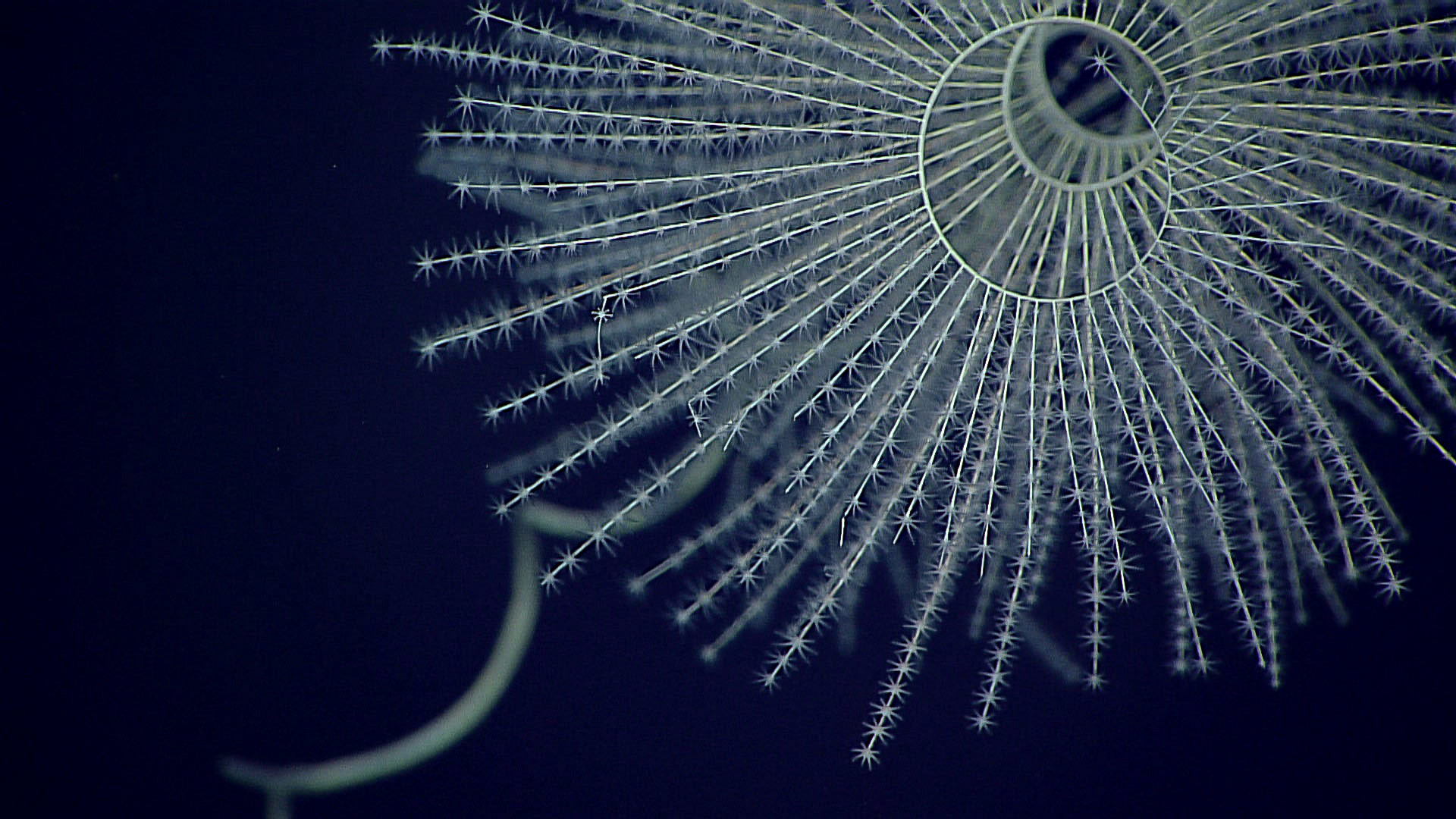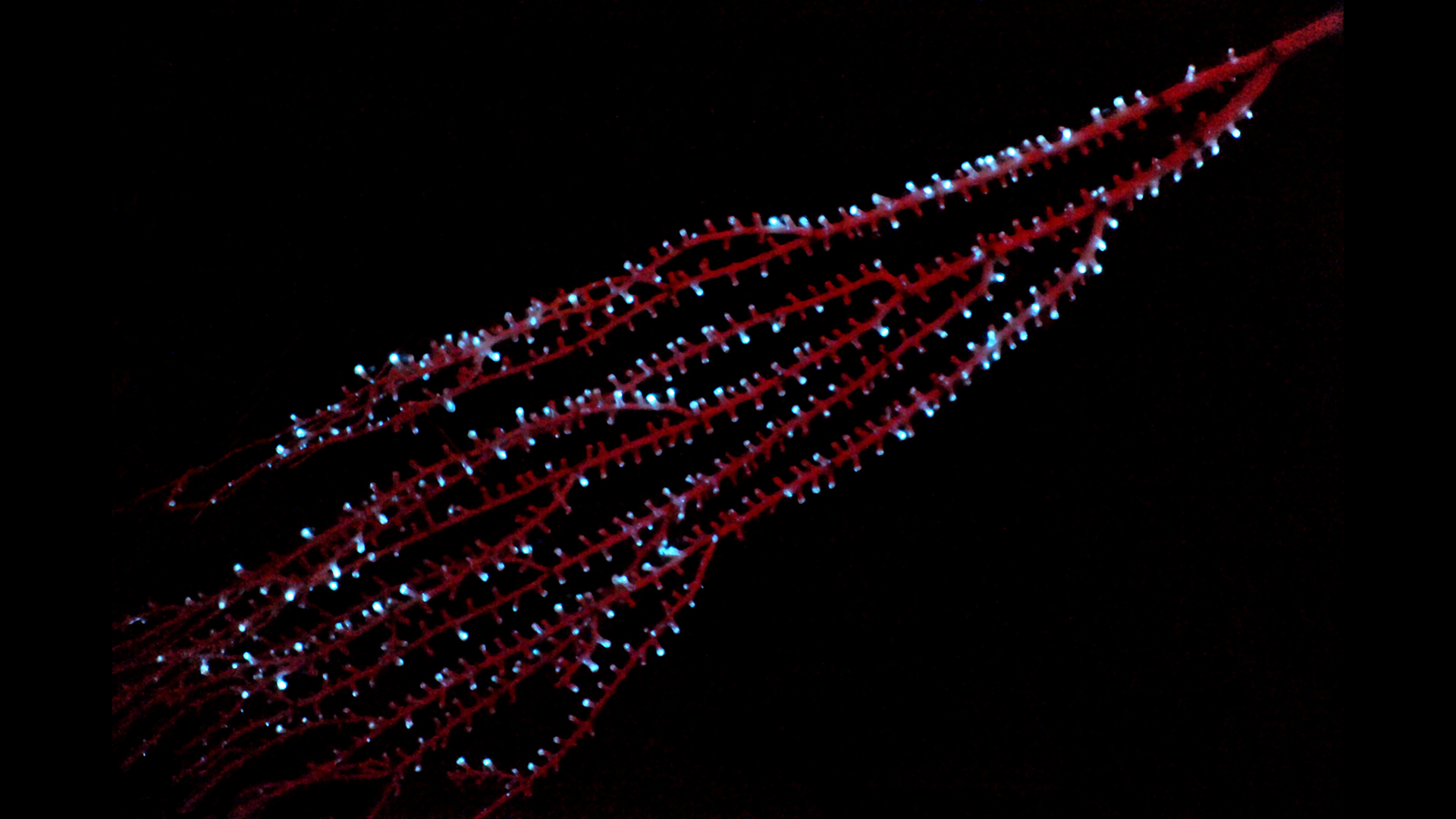
Bioluminescence in marine life dates back 540 million years, winding back the clock by a staggering 300 million years against earlier estimates, a new study finds.
"We often think that the deep sea is light-limited, and this is true in terms of sunlight, but many organisms in the deep sea produce their own light through a simple chemical reaction known as bioluminescence," study author Andrea Quattrini, curator of corals at the Smithsonian's National Museum of Natural History, told Live Science in an email.
Bioluminescence — or glowing in the dark — is abundant in marine life including in fish, corals, jellyfish and crustaceans. On land, the phenomenon is found in many animals, including fireflies, beetles, mushrooms, algae and some bacteria.
Scientists believe that life evolved bioluminescence to aid in communication, courtship, predation, and as a means of camouflage.
Uncovering similarities in genetic sequences across groups can provide clues about the evolutionary history of a trait or characteristic. Bioluminescence involves a highly heritable protein called luciferase and, so far, the phenomenon is thought to have evolved around 100 times.
Related: Weird rodent glows under UV light with disco swirls of pink and orange

In a new study published Wednesday (April 24) in the journal Proceedings of the Royal Society B: Biological Sciences, scientists reveal the origins of bioluminescence in a group of marine invertebrates known as octocorallia, or octocorals.
"We wanted to figure out the timing of the origin of bioluminescence, and octocorals are one of the oldest groups of animals on the planet known to bioluminesce," lead author Danielle DeLeo, a research associate at the Florida International University, said in a statement. "So, the question was when did they develop this ability?"
To find out, the team placed bioluminescent octocoral fossils with known ages and physical characteristics onto an evolutionary tree, then used this to work out when lineages split. They next mapped the branches featuring bioluminescent living species, and then used a statistical analysis to work out if their ancestors were likely to glow in the dark.
Results revealed bioluminescence emerged in octocorals 540 million years ago.
The origin of bioluminescence had previously been traced to 267 million years ago to crustaceans during the Permian period (298.9 million to 251.9 million years ago). The new findings wind the clock back further to the early Cambrian period (541 million to 485.4 million years ago) — a point when animal life on Earth was gaining a foothold and evolving rapidly.
The findings support the idea that bioluminescence evolved from a way to detoxify oxygen, a highly reactive and toxic substance to early life forms, to a form of communication in low-light, deep sea environments, Stefan Schramm, professor of applied organic chemistry at the University of Applied Sciences Dresden, in Germany who was not involved in the study, told Live Science in an email.
"This transformation underscores the adaptive value of bioluminescence in marine evolutionary history," he said.
The earliest known eyes in the fossil record date to the early or middle Cambrian. So, if ocean creatures with eyes and photoreceptors were present when bioluminescence first emerged, then a functional role in communication is also highly plausible. "Our research hints at the possibility that interactions involving light occurred between species during a time when animals were rapidly diversifying and occupying new niches," Quattrini said. "It points to bioluminescence as one of the earliest types of communication in the oceans."







